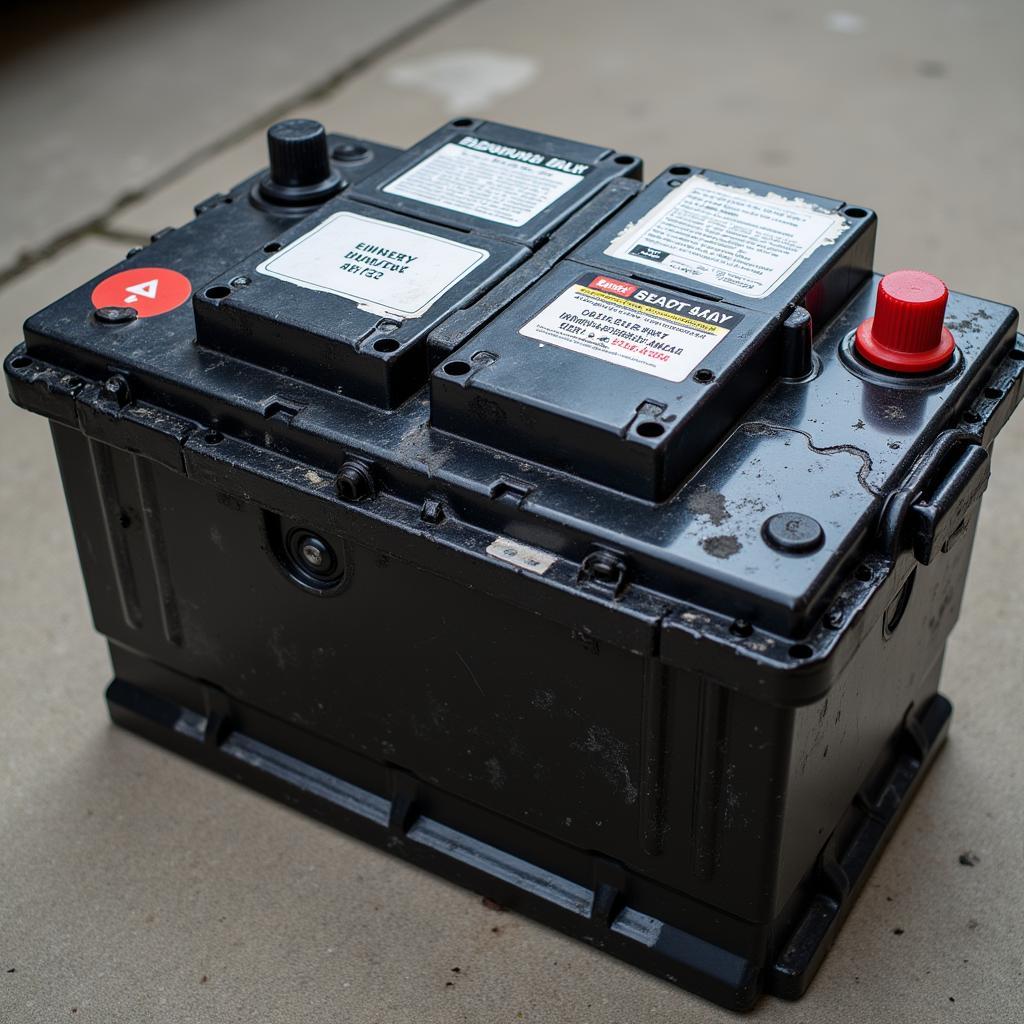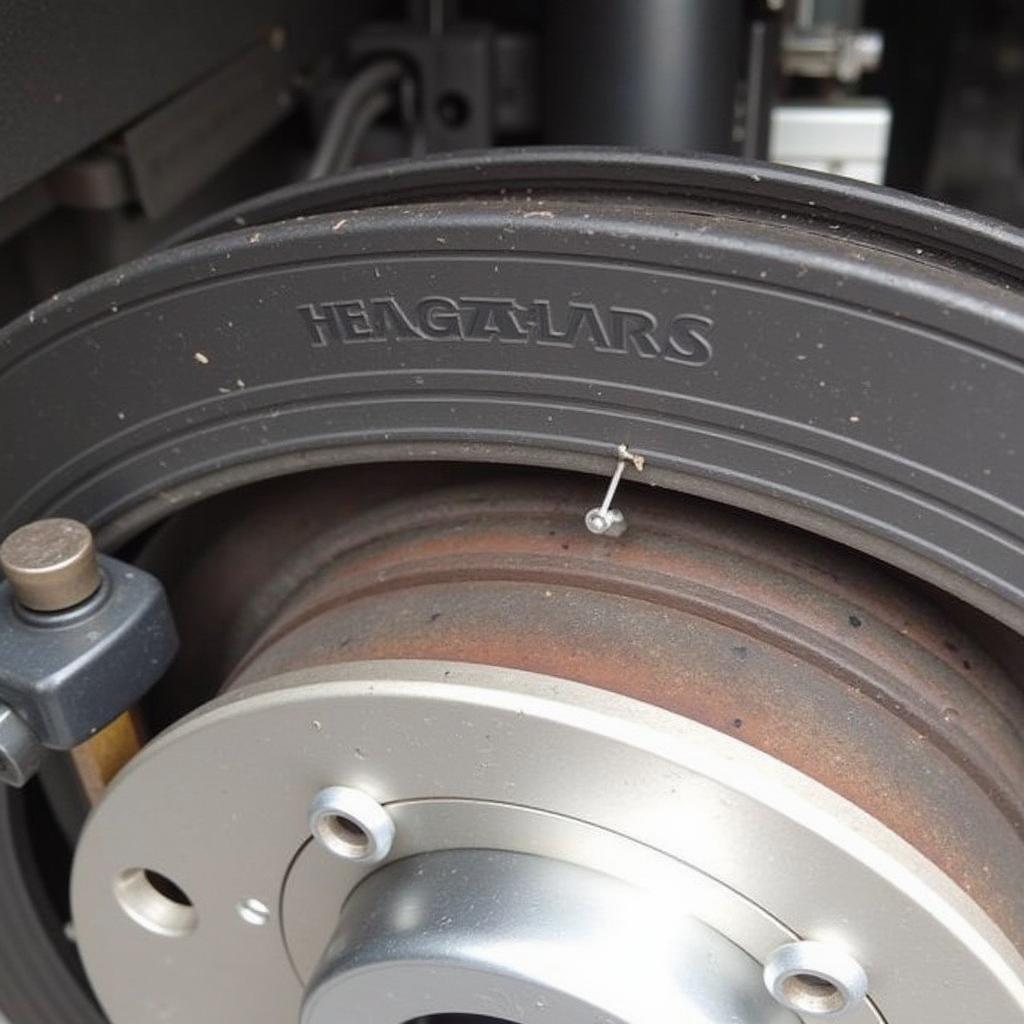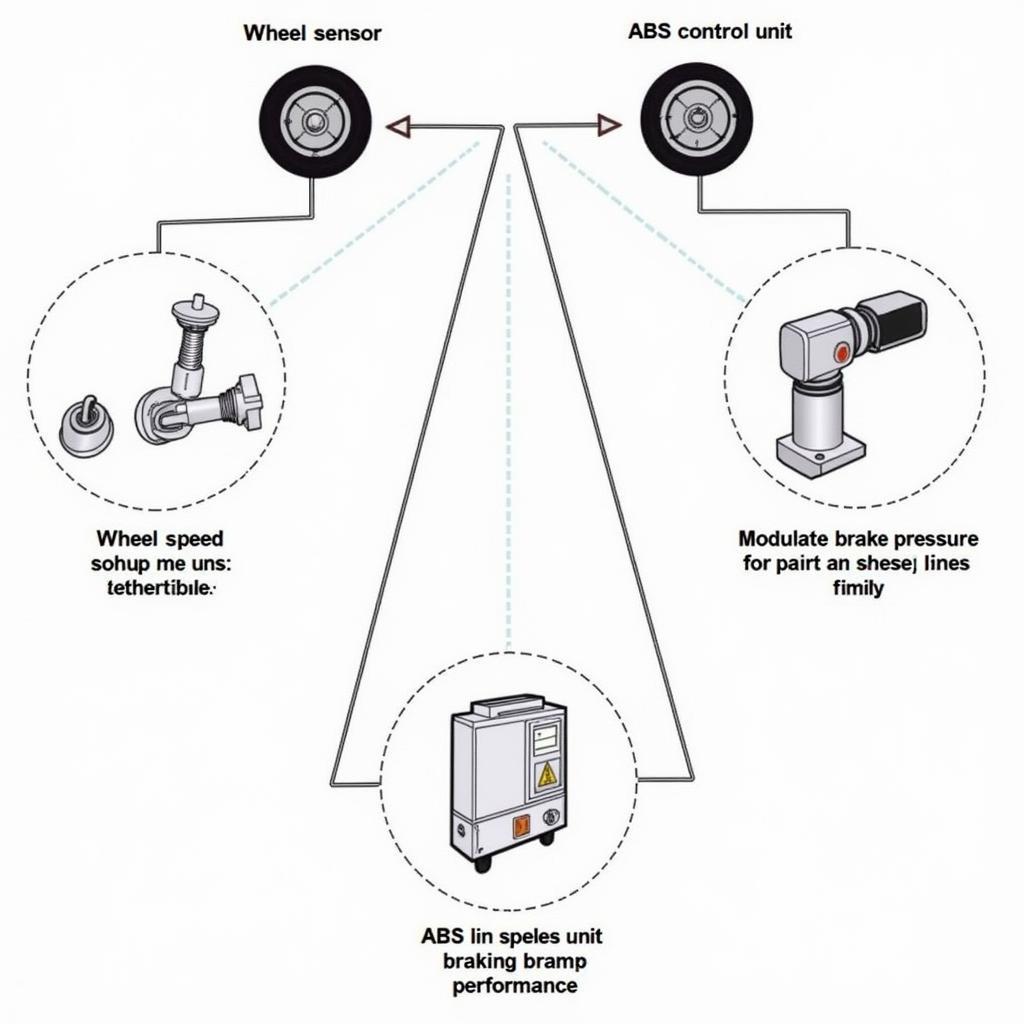A car battery is the heart of your vehicle’s electrical system, providing the initial power needed to start the engine and power various electrical components. Understanding the signs of a bad car battery voltage is crucial for maintaining your vehicle’s reliability and avoiding unexpected breakdowns. Low voltage can indicate a dying battery or a more complex electrical issue.
Similar to symptoms car battery needs replacement, a failing battery can manifest in various ways. Let’s explore the key indicators of a bad car battery voltage so you can address the issue promptly and effectively.
Understanding Car Battery Voltage
A fully charged car battery typically measures around 12.6 volts. Anything below 12.4 volts indicates a potential issue, and voltage below 12 volts signifies a significantly discharged battery. These low voltage readings can disrupt the proper functioning of various car systems.
How to Test Your Car Battery Voltage
Testing your car battery voltage is a straightforward process. You’ll need a multimeter, a readily available tool at most auto parts stores. Simply connect the red lead of the multimeter to the positive terminal of your battery and the black lead to the negative terminal. The reading on the multimeter will indicate your battery’s voltage. Readings consistently below 12.4 volts warrant further investigation.
Common Signs of a Bad Car Battery Voltage
Several symptoms can indicate a problem with your car battery voltage. Recognizing these signs can help you diagnose the problem before it leaves you stranded.
Slow Engine Crank
One of the most noticeable signs of low car battery voltage is a slow engine crank. If your engine cranks slowly or struggles to turn over, it could be due to insufficient power from the battery.
Dim Headlights
Dim headlights, especially when the engine is idling, can be another indicator of low car battery voltage. This is because the alternator, responsible for charging the battery while the engine is running, may not be providing sufficient power.
Clicking Sound When Starting
A rapid clicking sound when you attempt to start your car is a classic sign of a severely discharged or failing battery. This clicking is the sound of the starter solenoid rapidly engaging and disengaging due to insufficient power. This situation aligns with the symptoms described in car wont start rapid clicking.
Electrical Malfunctions
Low battery voltage can also affect the proper functioning of various electrical components in your car. You may experience issues with the power windows, radio, interior lights, or other accessories. These issues can sometimes mimic the problems associated with a car battery one cell dead.
Battery Warning Light
The battery warning light on your dashboard is a clear indication of a potential problem with your charging system. While this light doesn’t always indicate a bad battery, it can suggest low voltage or a failing alternator. It’s crucial to have the system checked by a professional.
Swollen Battery Case
A swollen or bloated battery case is a serious sign of internal damage and requires immediate attention. This can be caused by excessive heat or overcharging and can lead to battery failure or even leakage of hazardous chemicals. This is another instance where knowing whether it’s is it a dead battery or alternator becomes vital.
 Swollen Car Battery Case Indicating Damage
Swollen Car Battery Case Indicating Damage
What Causes Low Car Battery Voltage?
Several factors can contribute to low car battery voltage. Some common causes include:
- Old Age: Car batteries have a limited lifespan, typically 3-5 years.
- Parasitic Drain: Electrical components drawing power even when the car is off. This can be similar to a 2016 jeep grand cherokee battery drain scenario.
- Extreme Temperatures: Both extreme heat and cold can affect battery performance.
- Faulty Alternator: A malfunctioning alternator won’t charge the battery properly.
- Corroded Terminals: Corrosion on the battery terminals can impede the flow of electricity.
Conclusion
Recognizing the signs of a bad car battery voltage is essential for maintaining your vehicle’s reliability and avoiding inconvenient breakdowns. By regularly checking your battery voltage and addressing any potential issues promptly, you can ensure your car starts reliably and performs optimally. Don’t ignore the warning signs – a little preventative maintenance can save you a lot of hassle in the long run.
FAQ
- How often should I check my car battery voltage? It’s recommended to check your car battery voltage at least once a month.
- Can I jump-start a car with low battery voltage? Yes, you can jump-start a car with low battery voltage, but it’s essential to address the underlying cause of the low voltage.
- How long does a car battery last? Car batteries typically last 3-5 years, but this can vary depending on driving habits and climate.
- What should I do if my car battery is swollen? If your car battery is swollen, do not attempt to jump-start or charge it. Replace the battery immediately.
- How can I prevent low car battery voltage? Regular maintenance, including cleaning battery terminals and checking for parasitic drains, can help prevent low car battery voltage.
- What is the ideal car battery voltage? A fully charged car battery should measure around 12.6 volts.
- Can a bad alternator cause low car battery voltage? Yes, a faulty alternator will not charge the battery properly, leading to low voltage.


